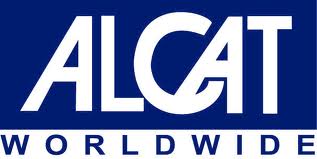 The Antigen Leukocyte Cellular Antibody Test for Chemical and Food Allergies, better known as “ALCAT,” has been a source of controversy lately. Physicians around the country send patient blood draws to Florida-based Cell Science Systems, which conducts a comprehensive sensitivity/food intolerance test for reactions to over 350 foods and chemicals.
The Antigen Leukocyte Cellular Antibody Test for Chemical and Food Allergies, better known as “ALCAT,” has been a source of controversy lately. Physicians around the country send patient blood draws to Florida-based Cell Science Systems, which conducts a comprehensive sensitivity/food intolerance test for reactions to over 350 foods and chemicals.
Part of the controversy relates to the value of the test itself. Many physicians and patients swear that the ALCAT test has produced incredibly positive improvements in health. Others criticize it as unproven, unreliable, and medically unnecessary for all indications.
The controversy also extends to the practice of physicians purchasing the ALCAT test and marking it up in bills to insurance companies. After reimbursing doctors for the test for years, in 2012, some of the large payors labelled the ALCAT test as “investigational” and began to deny coverage on the basis of lack of medical necessity.
At least one large payor has gone even further, threatening physicians for marking up the test. California is one of a number of states which have anti-markup provisions relating to clinical lab services. Under the terms of California Business & Professions Code Section 655.5, an ordering physician may not add any “additional” charge to a clinical laboratory service unless the service is “actually rendered” by the physician and itemized in the bill. The physician is also required to notify the patient up front of the name, address, and charges of the laboratory performing the service. While this provision does not apply to tests rendered by physicians in their own labs, it raises a potential problem as to “purchased” or outsourced tests like ALCAT.
Although California has had this provision on the books for over two decades (it was enacted in 1991), the current anti-ALCAT efforts represent perhaps the most prominent enforcement effort to date. Some payors are initiating recoupment actions, seeking to force physicians to repay reimbursement for the ALCAT test and leaving many physicians uncertain of their rights.
Much of the confusion relates to the limitations of Section 655.5. For example, many physicians have not distinguished between their right to charge a reasonable drawing and processing fee for lab specimen and the marking up of the lab test itself.
In addition to taking care to understand Section 655.5, physicians facing threats, demands, or actual enforcement actions from health plans also need to understand the multiple legal and equitable defenses that may prevent insurers from recovering moneys. Nelson Hardiman is glad to advise physicians who are concerned about this issue or to defend physicians facing investigations, demands, or worse from payors.